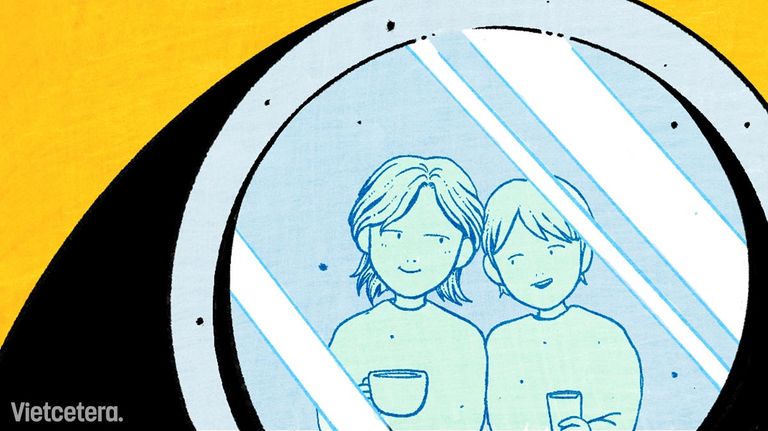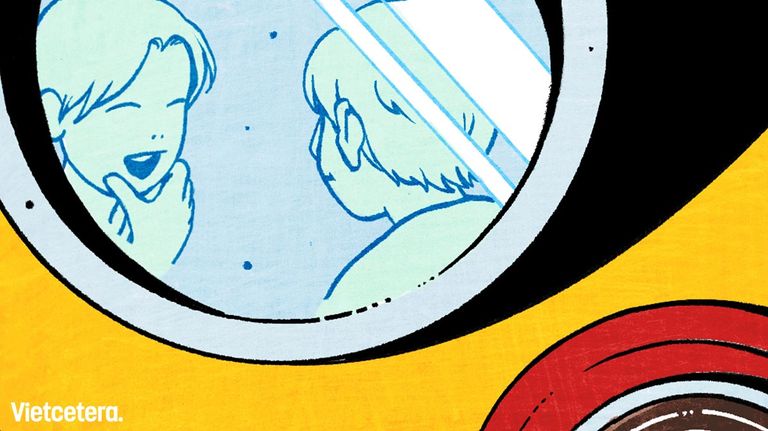Each of us interacts with love uniquely. Some may only experience a crush, while others develop deeper feelings, and a fortunate few achieve a lifetime commitment. There are also those who experience a tumultuous journey, undergoing numerous cycles of love and heartbreak before discovering their perfect match.
Regardless, clinical social psychologist George Levinger identified five stages common to most romantic relationships. He labeled them using the first five letters of the English alphabet (ABCDE): Attraction, Buildup, Continuation, Deterioration, and Ending.
Stage 1: Attraction

All relationships commence with an interaction between two individuals. If they find significant compatibility after an encounter (or a few), they begin to attract each other.
This mutual pull could be due to physical appearance - if one (or both) finds the other’s physical traits appealing and their “type.” Sometimes, even sexual attraction kicks in at this stage.
It could also be psychological compatibility, where similarities in personality or life experiences draw them together. For instance, if both have endured the loss of a loved one, they might easily resonate with and attract each other, even at the initial meeting.
They magnetically pull each other if there’s considerable physical or psychological compatibility.
Additionally, other elements can impact the couple’s chemistry at this stage. Past relationship experiences, for example, could help establish a strong first impression or assist in quickly identifying the “green flags” (or the red flags) in the other person right from the get-go.
Stage 2: Buildup

The linchpin of this stage is “trust.” As feelings deepen, individuals grow to trust and become closer to each other, starting to rely on one another to some degree. They uncover more about each other’s lives, and both parties feel comfortable discussing their other relationships (family, friends).
To move from the attraction to the buildup stage, the sense of compatibility needs to transcend physical and psychological aspects. In other words, they need to find common ground in hobbies, personal values, and life ambitions.
Both individuals typically feel more at ease expressing their emotions during this stage, which can lead to occasional disagreements. However, this is entirely normal. The crucial part is learning how to communicate openly, treat each other with respect, and foster mutual understanding.
Stage 3: Continuation

This stage is encapsulated by the idea of “sharing a home.” After navigating disagreements in stage 2, the couple is ready to make a long-term commitment. This commitment might manifest as marriage, cohabitation, or starting a family - signals that both parties are prepared for long-term togetherness.
In the continuation stage, their affection may continue to evolve and deepen. However, there will be extended periods of stability with little change. In certain instances, this stability could become stagnation, causing the couple to feel bored if they don’t find something new in the relationship.
Stage 4: Deterioration

As time goes by, love can slide into decline when the sense of closeness between two people decreases. This may occur if a relationship loses equilibrium, for instance, when one person assumes all household chores, leaving the other free of shared responsibility. Here, one person ends up constantly giving while the other only takes.
Deterioration can also kick in when issues surface that become evident only when the pair start living together. Buying a house, childcare expenses, and disputes with in-laws serve as typical examples. Numerous couples hit this stage and stick together either out of commitment or the unwillingness to abandon a relationship into which they’ve poured significant time and emotional investment.
Even in thriving relationships where partners remain together, they will still encounter phases of deterioration. However, their problems aren’t severe, or they discover ways to surmount them and sustain the relationship.
Stage 5: Ending

This transpires when the couple can’t resolve the dilemmas that cropped up in stages 3 and 4. It’s crucial to remember that not every negative incident results in a split. They might part ways when the intimate spark or passion dwindles or when the bonds of commitment that held them together loosen.
Sometimes, couples separate due to uncontrollable factors such as differing religions, marriage laws (if they belong to different countries or religions), or hereditary health issues that make having children impossible.
Another reminder is that all relationships eventually come to an end. For thriving relationships, this termination happens when one partner passes away.
How to limit dissatisfaction in love?
According to anthropologist Helen Fisher, passion only “dies” when the relationship lacks novelty. Therefore, regularly sharing new experiences can help a couple limit dissatisfaction and avoid growing tired of each other. For instance, traveling to a new place or starting a new hobby can be perfect opportunities for both to discover new aspects of their partner’s character and strengths.
Moreover, relationships that have reached deterioration can still be "rescued" if both parties acknowledge what’s happening. Being open about your needs and expectations can help guide the relationship back to its previous stages. In other words, acknowledging the deterioration can help the couple “fall in love again” (or from stage 2).
Love is not a straight path; it depends on the twists and turns that occur. For example, if one of you falls ill, the other will rearrange their schedule to spend more time caring for the partner. This change can shift a relationship from the continuation or deterioration stage back to the build-up stage as both gain a deeper understanding of each other.



